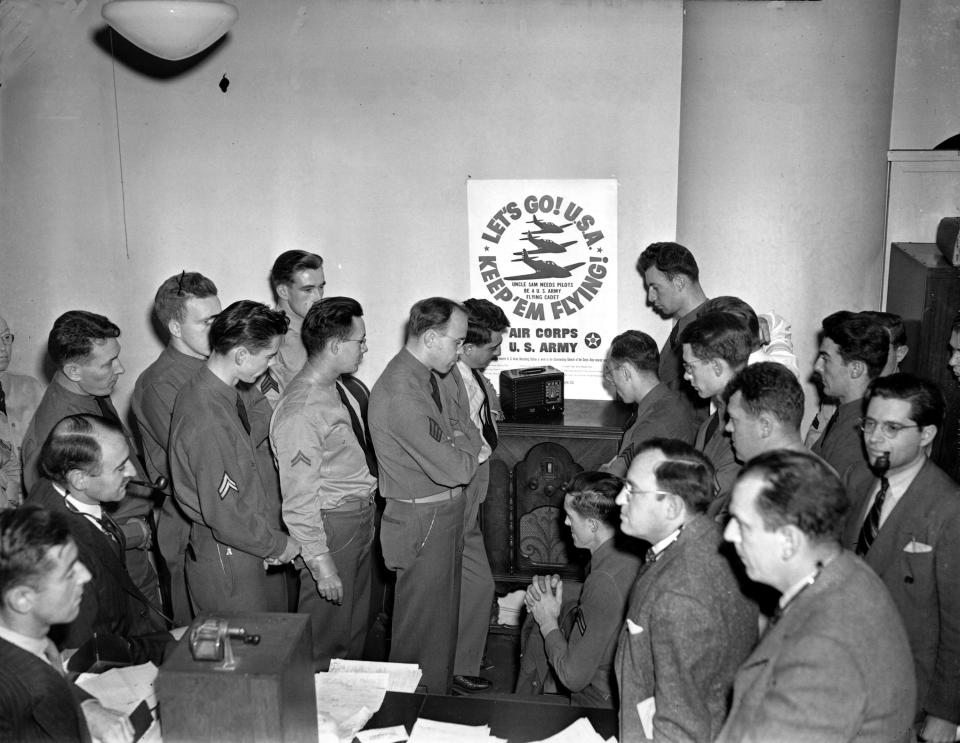Where Congress's authority to raise taxes and declare war emanates | Opinion
Editor's note: This is a regular feature on issues related to the Constitution and civics written by Paul G. Summers, retired judge and state attorney general.
Under Article I, Section 7, all bills that raise revenue shall originate in the House. Once a bill has passed the House and Senate with exactly the same language and provisions, it must be approved by the President in its entirety before becoming law.
If the President vetoes the bill, the veto may be overridden by a two-thirds vote of both the Senate and House before it becomes law. The third branch, the Judiciary, is independent and nonpolitical. It abides by the Rule of Law and acts as checks and balances against abuse of power by the other branches.
Congress shall have the power to lay and collect taxes and duties; to pay debts; to “provide for a common (Defence) and general Welfare of the United States”; to borrow money on the credit of the United States; to regulate commerce with foreign nations and among the several states; and to establish uniform naturalization and laws regarding bankruptcy.
Congress shall have power to regulate and coin money and to “fix the Standard of Weights and Measures...” in the U. S. Congress has the power to punish for the counterfeiting of coined money and securities and power “to establish Post Offices and post Roads.”
Congress has power to promote “Science and useful Arts,” such as the right to securing limited times for “Authors and Inventors” (to gain exclusive rights) “to their respective Writings and Discoveries.”
Section 8 allows for war declaration, National Guard and District of Columbia
Section 8 further provides that Congress may constitute courts and tribunals inferior to the Supreme Court. Article I allows Congress to define and punish crimes committed “...on the high Seas, and Offenses against the Law of Nations.”

Congress has the power “to declare War” and “...make Rules concerning Captures on Land and Water.” Congress has the power to raise and support Armies, naval and land forces, and the ability “(t)o provide for calling forth the Militia to execute the Laws of the Union, suppress Insurrections and repel Invasions....”
Section 8, after the militia provision, basically establishes the National Guard, which protects the individual States respectively. The National Guard can be called to federal active duty by the President to protect the United States. The National Guard is the oldest military organization in our country.
The reason they were referred to as the “Minutemen” is because they could be called to duty by the States’ governors or the U. S. President in a minute. Guardsmen today, as in the 18th century, are commanded by their governors unless called to active duty by the president for federal duty. They are truly Minutemen/women and are a vital part of our national defense.
Section 8 creates the District of Columbia, the Seat of the Government of the United States; and Congress exercises exclusive legislative jurisdiction. The District of Columbia shall not exceed ten miles square. That section finally creates the “necessary and proper clause,” which gives Congress the power to create legislation to properly carry out those duties and responsibilities delegated to it by the Constitution.
Reading the Constitution is time well spent. Though certainly not exhaustive, the foregoing powers are indicative of those delegated by the Constitution to the Congress.
Paul G. Summers is a lawyer. He is a former appellate and senior judge, district attorney general, and the Attorney General of Tennessee. He resides in Holladay and Nashville.
This article originally appeared on Nashville Tennessean: Where Congress's authority to raise taxes and declare war comes from

